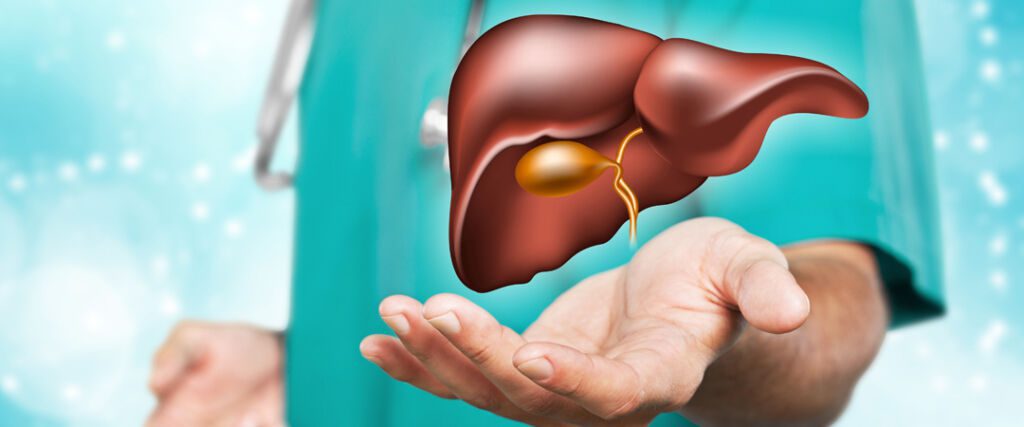
Gallstones can be a major source of discomfort and pain for many people. This guide will give you all the information you need to understand this condition and find ways to prevent, treat and change your lifestyle.
Prevention is essential to avoid potential complications and painful attacks. We’ll give you advice on healthy eating habits, weight management and the importance of exercise to keep your biliary system healthy.
If you already have gallstones, it’s important to know what treatment options are available. From lithotripsy to surgery, we’ll look at the different options to help you make an informed decision.
Finally, we’ll also discuss lifestyle changes that can help prevent new gallstones forming and improve the overall health of your biliary system.
Don’t let gallstones control you, take control of your health now by following our ultimate guide to gallstones.
WHAT ARE GALLSTONES AND WHAT CAUSES THEM?
Gallstones are small, solid stones that form in the gallbladder, a small organ located below the liver. They form when certain substances in the bile, such as cholesterol and bilirubin, crystallise and clump together. Several factors can contribute to the formation of gallstones, including a high concentration of cholesterol in the bile, reduced contraction of the gallbladder and an imbalance in the composition of the bile.
SYMPTOMS
Gallstones may go unnoticed in some people, but in others they can cause painful symptoms. Common symptoms include severe abdominal pain, often in the upper right quadrant of the abdomen, nausea, vomiting, bloating and pain in the right shoulder or back. It’s important to see a doctor if you have these symptoms to get an accurate diagnosis.
DIAGNOSING GALLSTONES
To diagnose gallstones, your doctor may use tests such as abdominal ultrasound, magnetic resonance cholangiography (MRC) or endoscopic retrograde cholangiopancreatography (ERCP). These tests allow us to visualise the gallbladder and bile ducts and assess their size and number.

RISK FACTORS
Several risk factors can increase your chances of developing gallstones. One of the main risk factors is obesity, as it is often associated with high levels of cholesterol in the bile. Women are also more likely to develop gallstones than men, especially if they are pregnant or take hormonal contraceptives. Other risk factors include a diet high in saturated fat and sugar, physical inactivity, a family history of gallstones and certain medical conditions such as diabetes.
PREVENTING GALLSTONES THROUGH DIET AND LIFESTYLE CHANGES
Preventing gallstones is essential to avoid potential complications and painful attacks. Eating a healthy diet, maintaining a healthy weight and exercising are important ways to keep your biliary system healthy. Fibre-rich foods, such as fruit, vegetables and whole grains, can help reduce the risk of gallstones by promoting healthy digestion. It’s also important to limit your intake of foods high in saturated fats and sugars, and to drink plenty of water to stay hydrated.
TREATMENT OPTIONS – DRUGS, SURGERY AND NATURAL REMEDIES
If you already have gallstones, it’s important to know what treatment options are available. Depending on the size and number of gallstones you have and the symptoms you are experiencing, your doctor may recommend different treatments. In some cases, medication may be prescribed to dissolve gallstones or reduce symptoms. In other cases, surgery, such as a cholecystectomy, may be needed to remove the gallbladder. There are also natural remedies, such as certain types of herbal medicine that can help relieve gallstone symptoms.
LIFESTYLE CHANGES
In addition to medical treatment, lifestyle changes can be beneficial in the management of gallstones. Maintaining a healthy weight, eating a balanced diet and getting regular exercise can help prevent the formation of new gallstones. Avoid fatty and sugary foods, favour fibre-rich foods and reduce your intake of alcohol and caffeine. It’s also important to look after your general health by not smoking and managing stress.

COMPLICATIONS OF GALLSTONES
Untreated gallstones can cause serious complications. One of the most common complications is cholecystitis, an inflammation of the gallbladder that can cause severe pain and infection. Gallstones can also block the bile ducts, leading to jaundice, pancreatitis and other serious health problems. It is therefore important to see a doctor as soon as possible if you suspect you have gallstones.
TIPS FOR LIVING WITH GALLSTONES
If you’ve been diagnosed with gallstones, it’s important to take certain steps to avoid complications and manage your symptoms. Follow your doctor’s recommendations about diet, weight and medication. Avoid foods that trigger pain attacks and maintain a healthy lifestyle. If you experience severe pain or other serious symptoms, see your doctor immediately.
CONCLUSION
Gallstones can be an uncomfortable condition, but with the right preventive measures, appropriate treatment options and lifestyle changes, you can manage this condition and improve your biliary health. Don’t forget to see your doctor for an accurate diagnosis and personalised advice. Take control of your health now by following our ultimate guide to gallstones.

